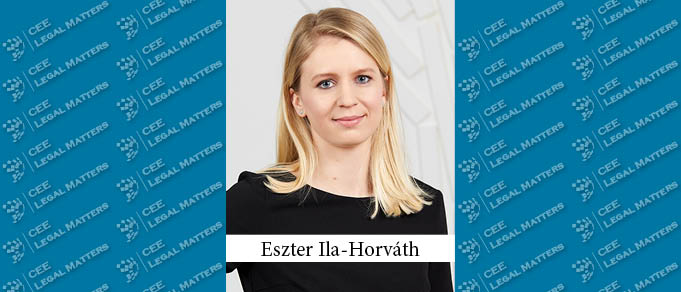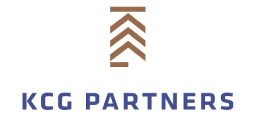Finance Minister Mihaly Varga announced on 4 May 2024 that the Government will prolong the preferential VAT regime for new homes for an additional two years.
Strict Amendment to the Law: Compulsory Liability Insurance for Certain Electric Scooters, Segways, and Small Tractors
According to a statement made by the Association of Hungarian Insurers, from 16 July 2024, the range of vehicles for which compulsory motor vehicle liability insurance must be taken out will be extended.
New Function on NAV’s Mobile Application: Checking Data on Employment
With a new function on the National Tax and Customs Administration’s (NAV) mobile application (“NAV Mobile”), anyone can check whether their employer has notified the tax authority about their employment in accordance with the employment contract.
Thanks to the Hungarian Competition Authority’s Decision Viber Has Become More Secure and More Transparent
In February 2020 the Hungarian Competition Authority initiated a competition supervisory procedure against Viber Media (operator of the Viber app, seated in Luxembourg) which was likely to infringe the prohibition of unfair commercial practice against consumers. During the procedure, Viber made commitments aiming at the avoidance of penalties. The procedure ended on 16 May 2024 with a decision where the authority, without finding an infringement or lack of infringement, obliged Viber to fulfil its commitments.
Is Hungary at the Forefront of Artificial Intelligence in Europe?
Recently, the Artificial Intelligence Coalition (MIK) informed the relevant committee of the Hungarian Parliament about possible trends in the sector. The MIK’s goal is clear: to put Hungary at the forefront of AI developments and applications in Europe and to become a member of the international AI community. In this process, it will bring together users, market players, academia, professional organisations and public institutions.
KCG Partners advises Corvinus on the landmark acquisition of Budapest Airport
We are proud to announce that KCG Partners have advised Corvinus Zrt., the Hungarian state-owned investment fund in the strategic acquisition of majority interest of Budapest Liszt Ferenc International Airport.
Linklaters, Freshfields, Bittera, Kohlrusz & Toth, CMS, Wolf Theiss, Kinstellar, and Orrick Advise on AviAlliance' Sale of Budapest Airport to Corvinus and Vinci Airports
Linklaters, Freshfields, Bittera, Kohlrusz & Toth, and Herbert Smith Freehills have advised AviAlliance and co-shareholders on the sale of Budapest Airport to a consortium consisting of Hungarian state-owned Corvinus Zrt and French co-investor Vinci Airports for a total purchase price of EUR 3.1 billion and net debt of EUR 1.2 billion. CMS advised Corvinus. Kinstellar, working with Orrick, advised Vinci Airports. Wolf Theiss, working with Latham & Watkins, advised the lenders on financing the transaction.
Member State Authorities Cannot Withdraw Residence Permits Without Giving Reasons Even If the Reason is “TOP SECRET”
The Court of Justice of the European Union has decided in two cases concerning Hungary in its judgments in joined cases C-420/22 and C-528/22, published on 25 April 2024.
Modification of the Provisions on Guest workers: They Are Not Allowed to Work in the Public Sector
A new decree entered into force on 9 April 2024 on the ban of employment of guest workers in the public sector in Hungary.
The Hungarian Act on Crypto Assets is Published
EU legislation on crypto-assets is based on the EU Regulation on Markets in Crypto Assets (as known as MiCA), which is directly applicable in the Member States, including Hungary.
New Provisions on Immediate Transfer from 1 April 2024
As of 1 April 2024, the decree of the Hungarian National Bank on the processing of payment transactions has been amended, which particularly affects the process of immediate transfers.
Saul vs. Harvey – From Screen to AI Lawyers
In the ever-evolving landscape of legal technology, two notable players, SauLM-7B, and Harvey AI, have emerged with the aim of revolutionizing legal assistance through artificial intelligence. SauLM-7B and Harvey AI compete for prominence in the legal tech arena, their names both carrying a subtle nod to the realm of popular TV series – from Saul Goodman's legal antics in Breaking Bad and Better Call Saul to Harvey Specter's suave maneuvers in Suits.
Are Convenience Fees Lawful?
Convenience fee is the part of our everyday life that seems to be a usually small but inconvenient price to pay for shopping online. But is it indeed a necessity? The Prosecution Service of Hungary intends to find out exactly that.
The Court of Justice Clarified the Power of the National Data Protection Authority
Based on a Hungarian case, on 14 March 2024 the Court of Justice ruled that the supervisory authority of a Member State, to ensure that the GDPR is fully enforced, may order the erasure of unlawfully processed data even if prior request by the data subject has not been submitted. Such erasure may cover data collected from the affected person and data originating from another source.
New Law on the Horizon: Stronger Competition Authority, Risks for Large Firms’ Owners
On 2 April 2024, a new bill was submitted to the Hungarian Parliament. Among other judicial system-related acts, the proposal aims to amend our Competition Act. The bill establishes the concept of ‘undertaking of fundamental importance’ (in Hungarian: “alapvető jelentőségű vállalkozás”) and gives new powers for the Competition Authority (HCA) in respect of these undertakings.
Restrictions on Taxpayer Examinations in 2024
The National Tax and Customs Authority (NAV) published its 2024 audit plan on 26 March 2024, which shows that it plans to carry out more rigorous audits this year than in recent years.
Company Registration Will Be Possible in 1 Day Also for Foreigners Soon
To enhance the competitiveness of the Hungarian economy, the Government plans to accelerate the process of setting up companies in Hungary for foreigners. Currently, individuals who do not understand Hungarian language, should wait days or even weeks to receive the decision from the Hungarian Company Registry Court certifying the registration of their new company.
Repealing Government Decree on the Different Application of Accounting
On 26 February 2024, the 34/2024 (II.26) decree on the different application of Act C of 2000 on Accounting during an emergency was published in the Hungarian Gazette, which repeals a decree issued a few days before, on 8 February.













